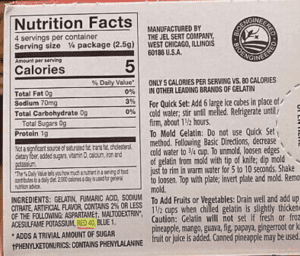Red Dye 40, also known as Allura Red, is a synthetic food dye commonly used in processed foods, beverages, and medications. While it’s generally considered safe, some studies have raised concerns about its potential health effects, especially for those with chronic kidney disease (CKD).
Potential Health Impacts of Red Dye 40
- Hyperactivity and behavioral issues: Some studies have linked Red Dye 40 to hyperactivity and behavioral problems in children, particularly those with ADHD.
- Allergic reactions: Although rare, some people may experience allergic reactions to Red Dye 40, such as hives, itching, or swelling.
- Gut health: Emerging research suggests that Red Dye 40 may disrupt gut health and contribute to inflammation in the digestive system.
- Kidney health: There is some evidence that Red Dye 40 may worsen kidney function in people with CKD. This is because the kidneys are responsible for filtering out toxins, and Red Dye 40 may be difficult for damaged kidneys to process effectively.
Red Dye 40 and Chronic Kidney Disease (CKD)
For individuals with CKD, it’s especially important to be mindful of potential dietary triggers that could worsen kidney function. While more research is needed on the direct link between Red Dye 40 and CKD, some studies suggest that it may contribute to inflammation and oxidative stress (body burnout), which can further damage the kidneys.
What You Can Do
- Read labels carefully: Check the ingredient list of processed foods, beverages, and medications for Red Dye 40 (often listed as RED40) or other artificial food dyes.

- Choose whole foods: Opt for whole, unprocessed foods as much as possible, as they are less likely to contain artificial dyes.
- Cook at home: Preparing meals at home allows you to control the ingredients and avoid artificial dyes.
- Talk to your doctor: If you have CKD or are concerned about the potential health effects of Red Dye 40, talk to your doctor or a registered dietitian for personalized advice.
The Bottom Line
While more research is needed to fully understand the health impacts of Red Dye 40, it’s wise to be mindful of your intake, especially if you have CKD or are concerned about its potential effects. By making informed choices and prioritizing a healthy diet, you can support your overall health and well-being.
You Might Also Like:

5 Southern Recipes That Lower Cholesterol & Honor Tradition








